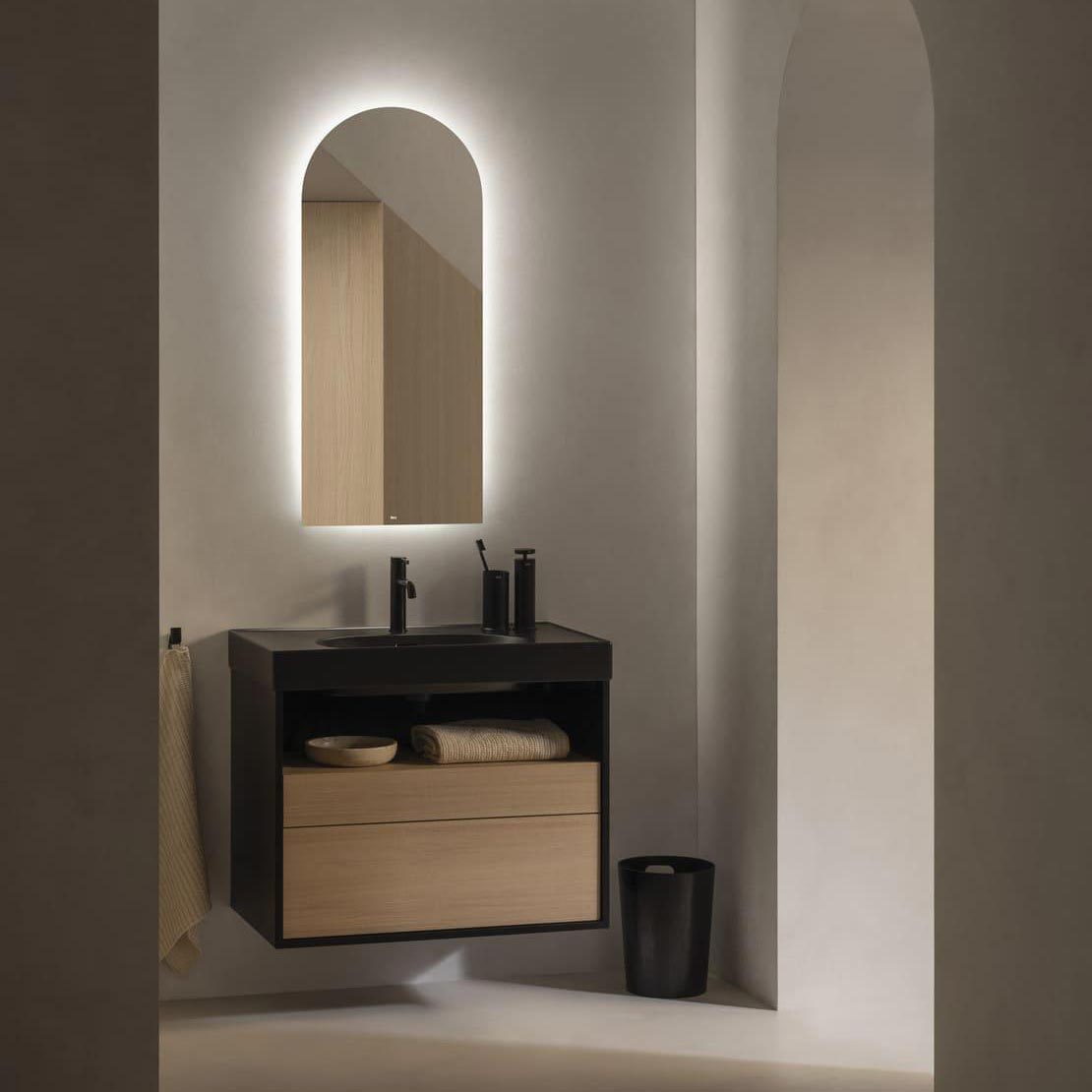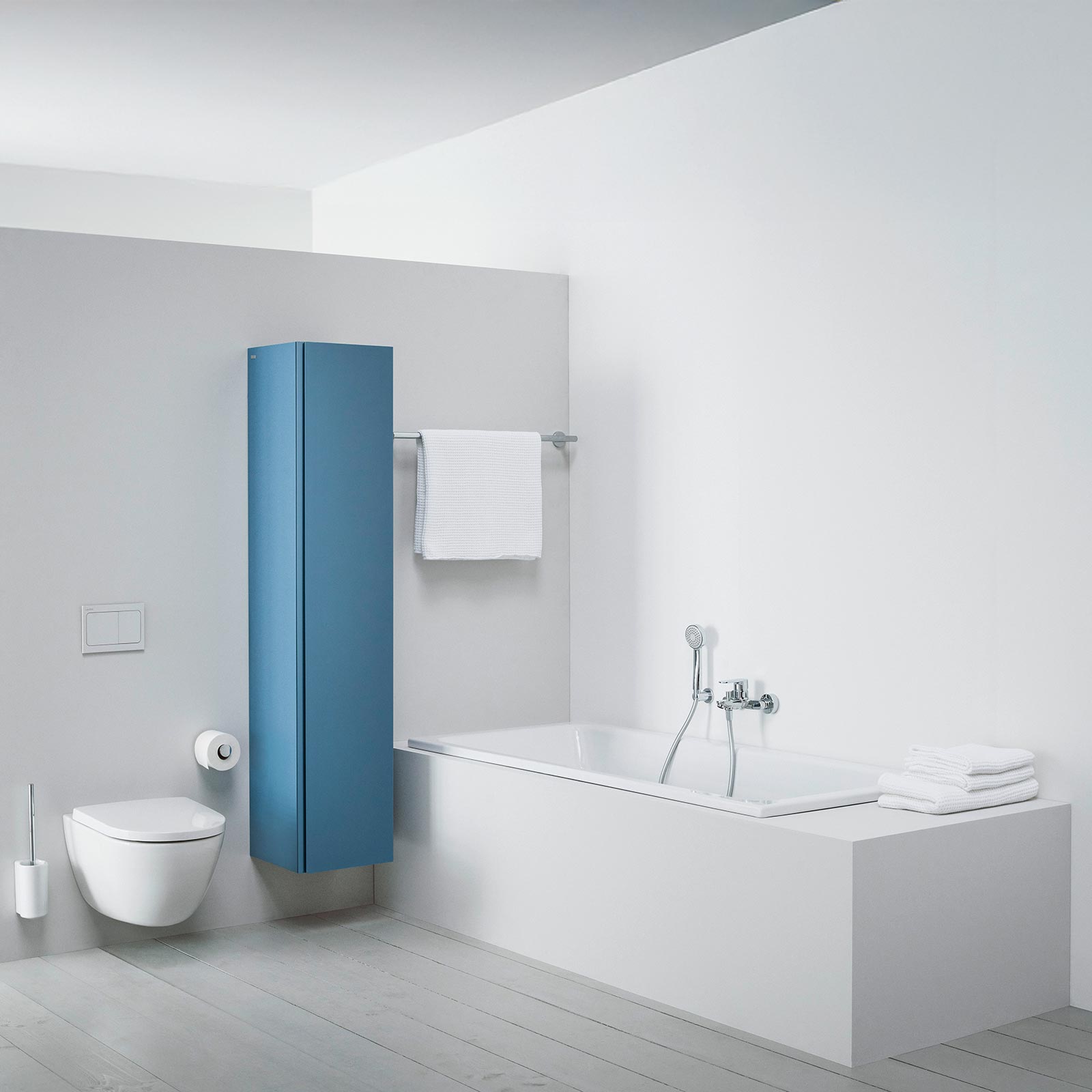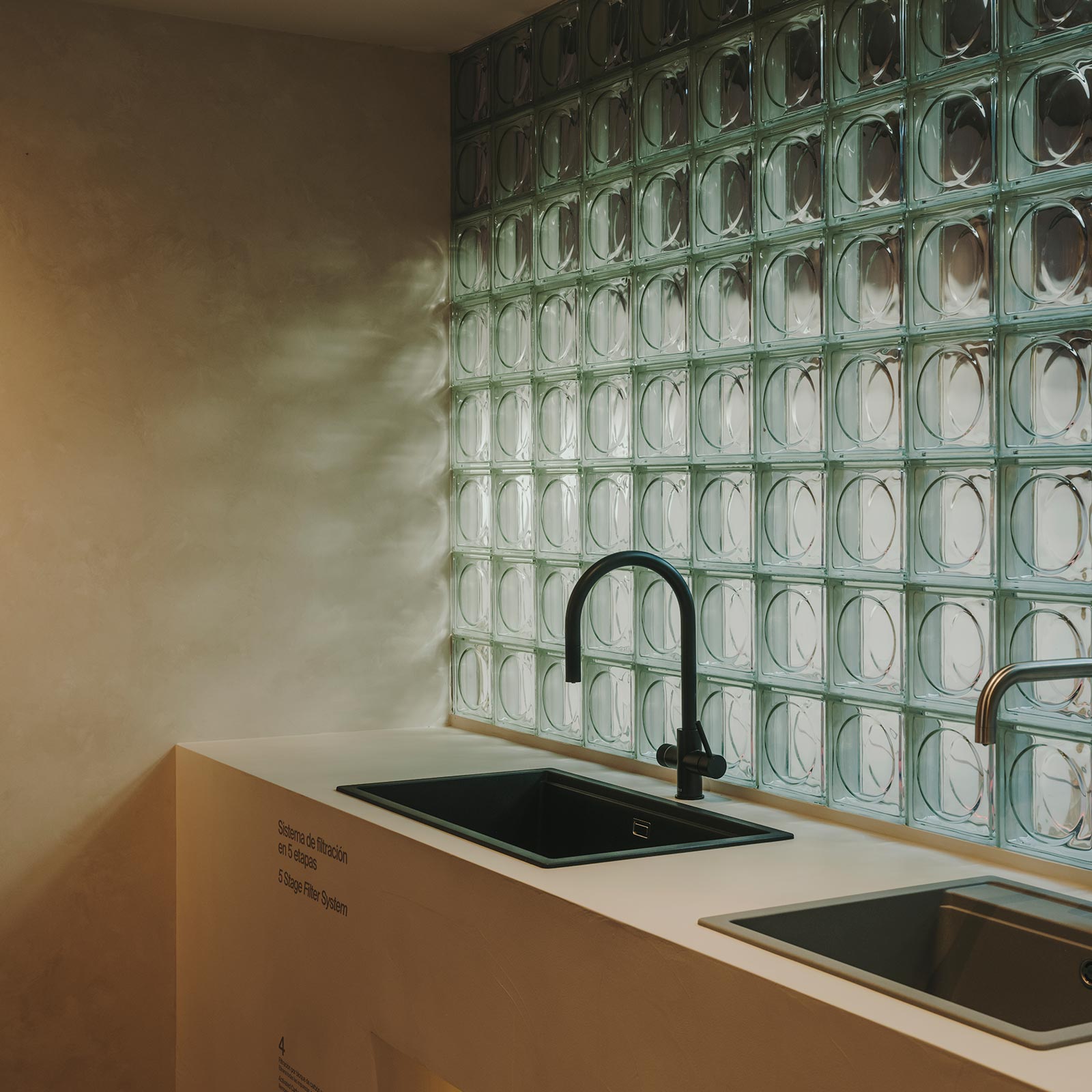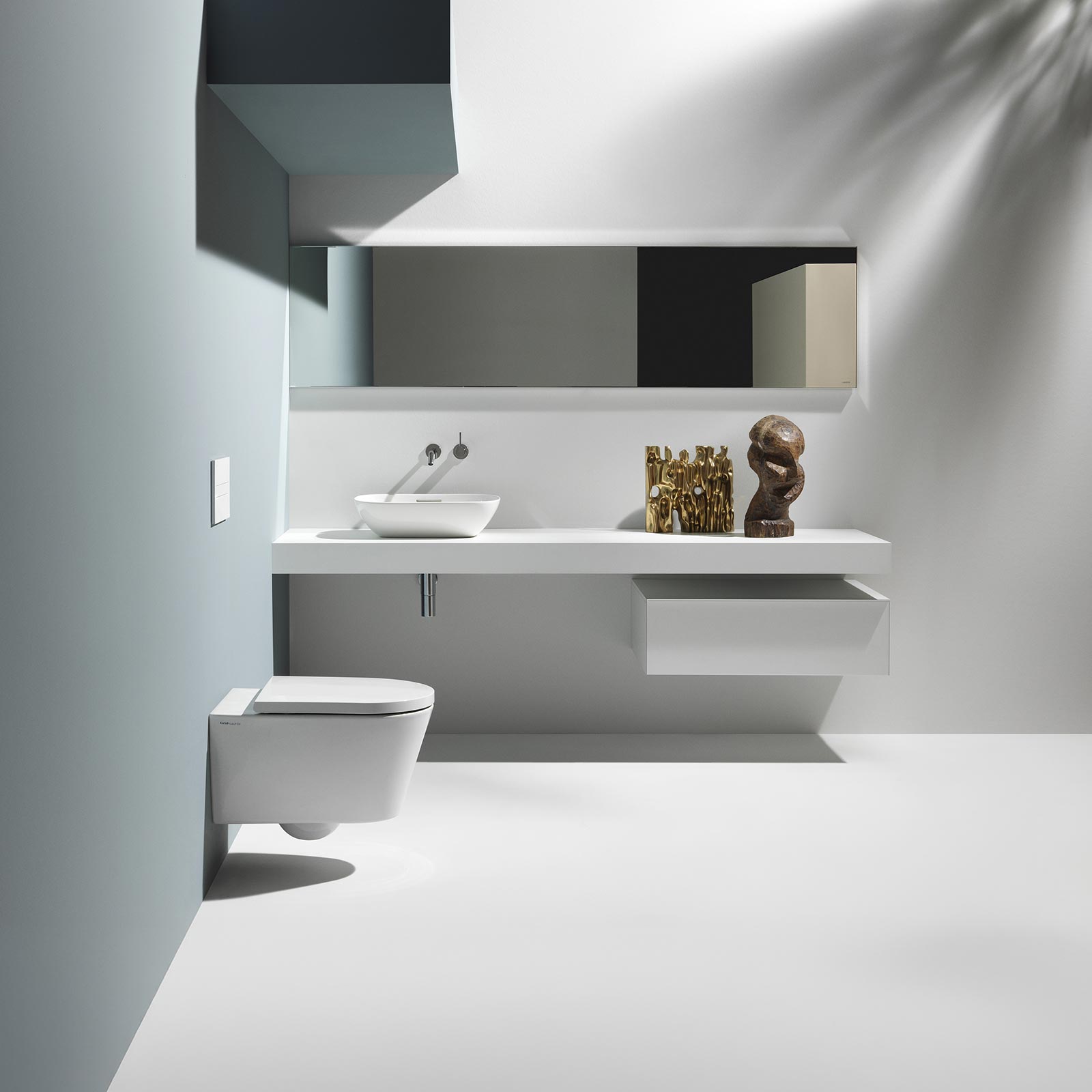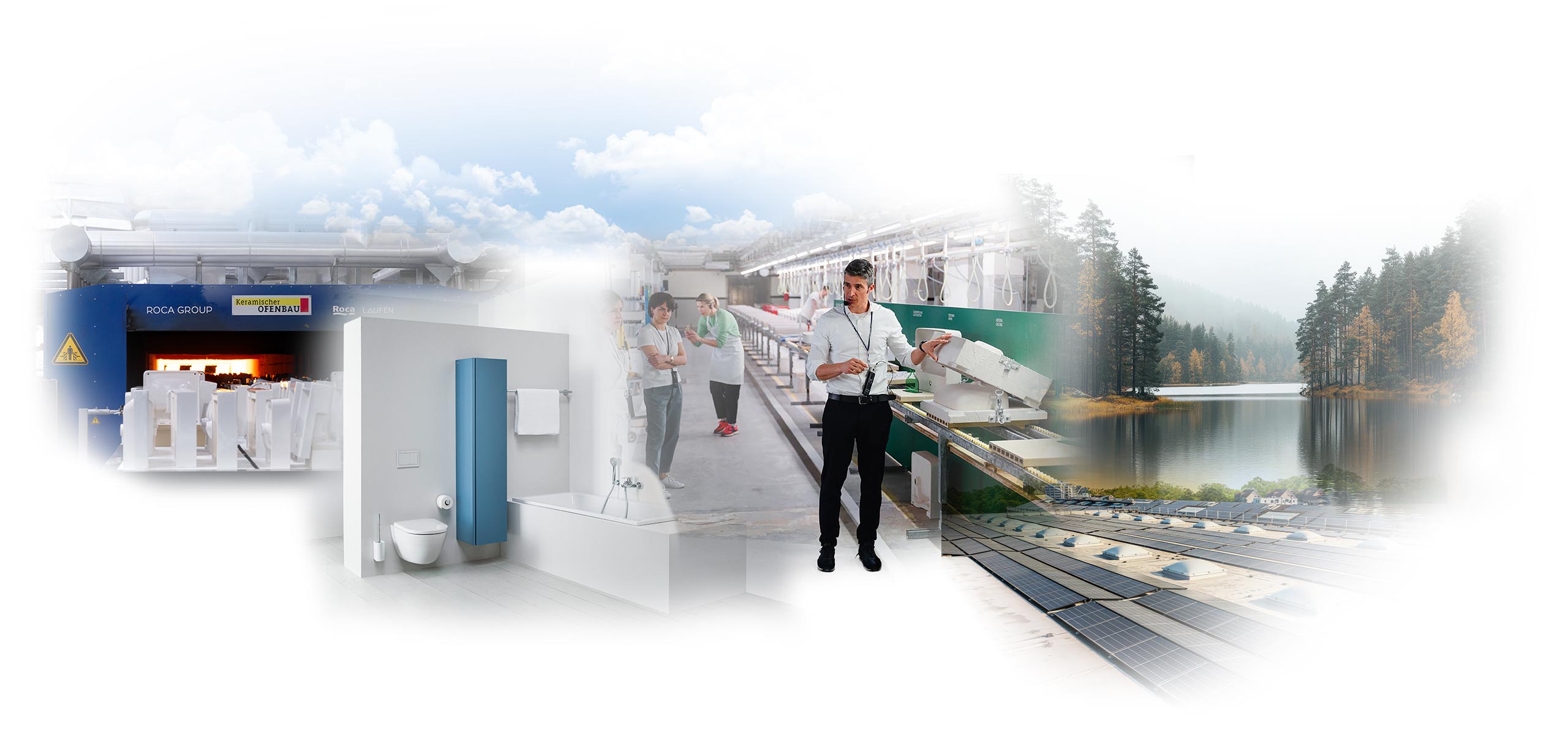
Decarbonization Roadmap
* Reductions compared with 2018. Due to the variety of product types and production processes within the group, the energy intensity of its operations is calculated by dividing the total energy consumption by the net sales amount.
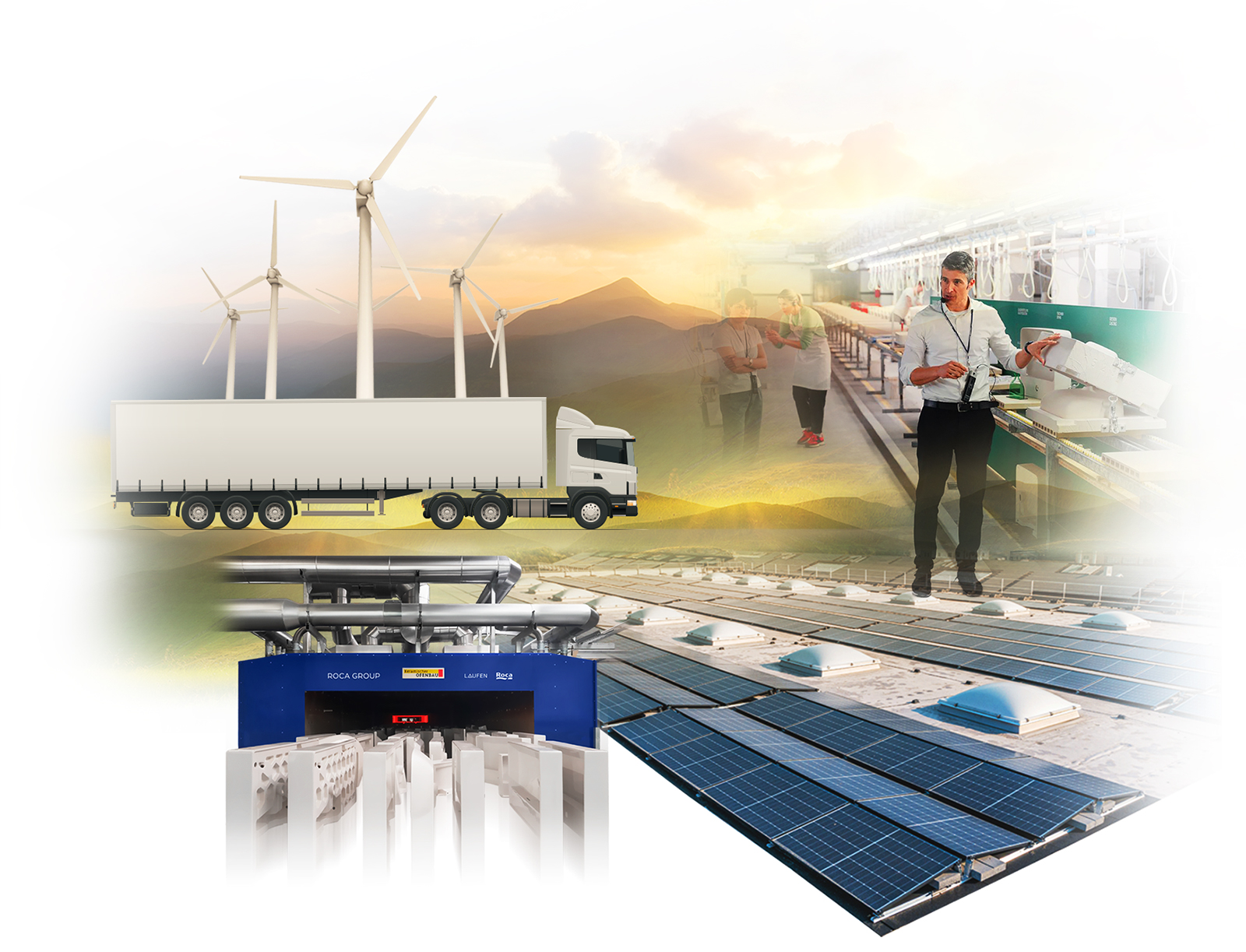
1. Strong governance system
Establish a strong governance system for the project at each of the 78 group plants to coordinate development of the local plan, monitor the level of compliance with objectives and identify new opportunities for improvement.
2. Energy efficiency
Implement energy efficiency improvements in production processes and provide them with the digital equipment needed for adequate monitoring.
Energy Management System (EMS).
Along with the strategic electrification plan, energy efficiency measures are applied for short- and medium-term impact, among them heat recovery systems, variable frequency drives and more efficient motors, plus preventive maintenance plans to eliminate leaks in compressed air distribution lines.
3. Integration of alternative energies
Replace high-carbon energy sources with eco-friendly alternatives by electrifying processes and using less polluting fuels in heat-intensive processes.
Energy efficiency measures.
Along with the strategic electrification plan, energy efficiency measures are applied for short- and medium-term impact, among them heat recovery systems, variable frequency drives and more efficient motors, plus preventive maintenance plans to eliminate leaks in compressed air distribution lines.
4. Commitment to renewables
Maximize the use of renewable energies based on photovoltaic self-consumption, purchase of green electricity with guarantees of origin or power purchase agreements (PPA).
Installation of photovoltaic panels.
In 2024, the group installed 10,000 new photovoltaic panels and now has 41,000 panels at its facilities, generating more than 21,200 MWh of clean electric power per year. Today, the group is already supplied by 100% renewable electric power sources with guarantees of origin in countries such as Spain, Portugal, Austria, Türkiye and Brazil.
41,000 photovoltaic panels in operation
50% of electric power supply from clean energy sources
5. Supply chain engagement
Involve and align the entire value chain to minimize scope 3 emissions. Based on this goal, suppliers with greater carbon footprint impact have been asked to share their emissions data for greater transparency and precision in emissions measurement.
Emissions reduction goals validated by SBTi
Objectives 2030*
* From a 2021 base year. The target boundary includes biogenic land-related emissions and removals from bioenergy feedstocks.
First emissions-free sanitaryware plant in the world
Gmunden reached this milestone after two pioneering innovations in the industry:
- First electric tunnel kiln in the world for sanitaryware production, allowing for carbon emissions-free manufacture of ceramic products for the bathroom. The kiln was commissioned in November 2023 after years of collaboration with Keramischer OFENBAU, from whom Roca Group acquired a shareholding to continue driving sustainability in the industry.
- 100% electrification of its processes: the plant only uses renewable electric power from certified sources and has its own photovoltaic panel system.
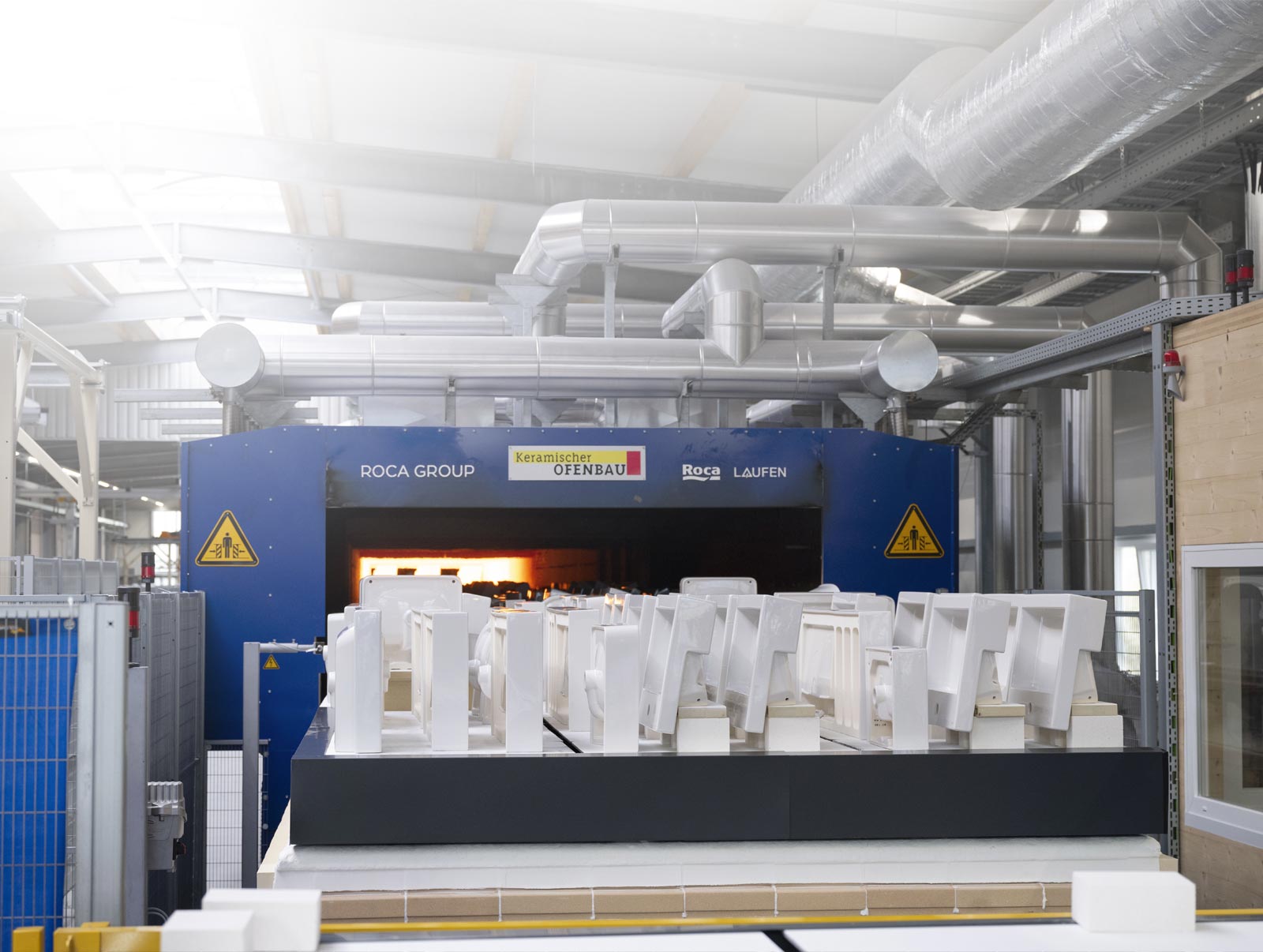
100 years of innovation at Gmunden
Commissioning of the first electric tunnel kiln in the industry coincided with the celebration of a century of production at Gmunden. As an innovation center for sanitaryware, in recent decades the plant has developed solutions such as slim-profiled Saphirkeramik porcelain, antibacterial and antiviral finishes and Save!, the first urine-diverting toilet.
Circularity Roadmap
Focus on circularity from day one: application of the principles of durability, reparability and recyclability from the earliest phase of product conception. In 2024, various corporate departments were encouraged to participate in a training program on ecodesign delivered by the Polytechnical University of Catalunya (UPC).
Analysis of alternative raw materials: prioritization of the use of materials certified as sourced recycling without sacrificing product quality or durability. The group promotes a global initiative to define and promote responsible sourcing standards for sand and silicates —the solid materials most abundantly used in the planet—, addressing the risks associated with extraction and use.
Committed to full recyclability: teams specialized in minimizing and improving the use of materials and optimizing shipping space. In 2024, activities and pilot tests were undertaken at various plants:
- Brazil: 20% reduction in the use of shrink wrap
- Spain: pilot test to replace plastic wrap with reusable cinches and use of cardboard pallets
- China: replacement of shrink wrap with elastic containment bands and reduction of expanded polystyrene (EPS) use in boxes
- Poland: reduction of packing and protective materials for bathtub shipping, avoiding the use of 250 trucks and 50 sea freight containers per year
Waste elimination at production plants: 78% valorization of waste generated to reintroduce them in the manufacture of new products or recycle them adequately.
- Austria: optimization plan with an objective recycling rate of 98% in 2025
- Brazil and India: tests with low-power kilns to reintroduce brass shavings in faucet production
- Germany: in-house system for plastics recovery in installation system production
- Sustainable Ceramics Project to maximize the percentage of waste reintroduced into the sanitaryware production process
147,853 metric tonnes of waste generated in 2024
▾54% waste*
▾58% waste intensity*
78% of valorized waste
* Compared with 2018. Due to the variety of product types and production processes within the group, intensity is calculated by dividing total volumes by the net sales amount.
Step-by-step user guide: promoting circularity until the end of the product service life through measures such as encouraging the most common repairs, promoting correct disassembly of components and using spare parts, as well as proximity of discarded items to adequate recycling centers.
- Denmark: service to collect removed tanks
- Brazil: incentive program to offset recycling of sanitaryware packing materials
Water Neutrality Roadmap
The Water Neutrality Roadmap is based on the 6Rs strategy (Reduce, Reuse, Recycle, Recover, Reclaim and Replace) to minimize water consumption and optimize water use in all group production plants.
During an initial phase, pilot tests were conducted at the sanitaryware plants in Settat (Morocco) and Burgos (Spain), as well as the faucet plants in Eskisehir (Türkiye) and Cantanhede (Portugal). These plants are representative of the group’s main businesses and are located in water-stressed areas. In a second phase, based on the risks and opportunities identified, an action plan has been defined for all group plants.
* Compared with 2018. Due to the variety of product types and production processes within the group, intensity is calculated by dividing total volumes by the net sales amount.

Good practice in water-stressed areas
Roca Group has 13 plants in areas at extreme water risk (Indonesia, Morocco, India and China). To minimize the impact on these ecosystems and reduce dependence on public mains, specific actions and objectives have been defined to reduce water usage.
Indonesia
Implementation of rainwater collection systems and recovery of reverse osmosis reject water. This water, along with water from the treatment plant, is reintroduced into the production processes for various uses. In 2024, only 15% of water used by the plant came from the public mains.
India
The Perundurai plant adopted measures such as enlargement of its reverse osmosis systems and utilization of water cast off by solar panel cleaning. These measures reduced the usage of mains water by 26% compared with the previous year.
Morocco
Installation of a new recovery system for treated water at the wastewater treatment plant (WWTP) for use in cleaning tasks. This measure is estimated to allow mains water usage to be reduced as much as 130 m3/day.
Solutions fit for any need
Meridian from Roca
PRO X from LAUFEN
Aquafy by Roca
save!+ from Laufen
Committed to adaptability
In 2024, the group acquired Nosag (Switzerland) and IneoCare (Poland), companies specializing in the field of bathroom adaptations. This operation is a step forward in our commitment to innovation in developing solutions for people with reduced mobility or of advanced age, groups that already account for 20% of the European population, a figure that is rising.
The catalog of both companies has added to the total care concept product line that are already offered by the group’s two global brands (Roca and LAUFEN), focused on users who need devices fit for their personal circumstances.

